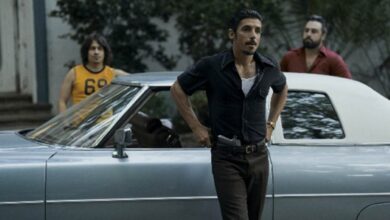Why Black Panther was a “revolution” in cinema
With the death of actor Chadwick Boseman, we decided to review one of the most important works in the Marvel superhero saga .

These are the reasons why ‘Black Panther’ is considered a revolution in the film industry. / Photo: Marvel Entertainment
LatinAmerican Post | Ariel Cipolla
Listen to this article
Leer en español: Por qué Black Panther supuso una “revolución” en el cine
The death of American actor Chadwick Boseman took everyone by surprise. Such was the uproar that occurred in social networks that, according to the Infobae website, the announcement of his death became "the tweet with the most likes in history", surpassing a post by Barack Obama.
This is so, not only because it took many people by surprise, but also because it represented an auspicious future in the film world. Thanks to his brilliant performance in the acclaimed film Black Panther, he established himself as one of the stars of Hollywood.
The AS website wonders what will happen to the sequel to this film, which was planned for 2022, so we decided to review the story of the King of Wakanda, understanding why it was so important, not only for the Marvel Cinematic Universe , but also for the film industry.
Black Panther: much more than a movie
The first thing we can say is that the actor was synonymous with inspiration. His early death really did feel bad in the community of young people, who had found in him a figure to imitate. According to what the MDZ Online website indicates, one of the main reasons for his relevance was that he was the protagonist of the first superhero movie with a cast of black actors.
That is to say, superhero films were almost always accused of having little or no diversity, causing most of the stories to take place in the United States. However, the arrival of this film gave a 180 degree turn to the matter, presenting the fictional country of Wakanda, characterized by its cutting-edge technology, as opposed to the common ills of other African countries.
This is why his performance, positioning himself as a leader and hero within his nation, made many young Africans believe in a better future. However, even the Americans themselves began to identify with this life story, which, at the same time, achieved enormous acceptance by the public.
This happened because, as mentioned on the La Tercera website, Black Panther “won the first Oscar for Marvel Studios”, achieving it in the category of best costume design, best original soundtrack and best production design. Not to mention that Kevin Feige's film was also nominated for the best film of 2019.
Also read: Why was my favorite series canceled?
Basically, getting this shortlist meant that the films, apart from their huge box office success, began to be inserted into the “cult” scene. From this film, critics began to observe superhero films with different eyes, since not only battles or special effects matter, but also the stories that can be told and the representation of diverse cultures.
The BBC website highlighted that this film raised "more than 1,000 million dollars globally", being the film directed by an African-American with the highest grossing in history. The idea of being able to show the pride our protagonist felt for Wakanda (generating the iconic phrase “Wakanda forever”, achieved an immediate sympathy with the film's followers.
Also, in narrative terms, the movie brought a lot of color and background to the MCU. Espinof's website had characterized it as “a one-of-a-kind adventure”, generating an identity of its own thanks to the creative freedoms given to its director.
Black Panther also gained special relevance within the most epic Marvel events. In this way, the specialized medium of CulturaOcio highlights that this actor was one of the "main resurrected" who managed to thrill us in the final battle against Thanos in Endgame, when he stands side by side with Captain America.
For this and many other things, Black Panther is seen as a revolutionary film for the film industry. The late Chadwick Boseman was seen as a hero on and off the screen, a situation that increased after it became known that, despite his short career, he made an effort to act in these films, even suffering from colon cancer.




